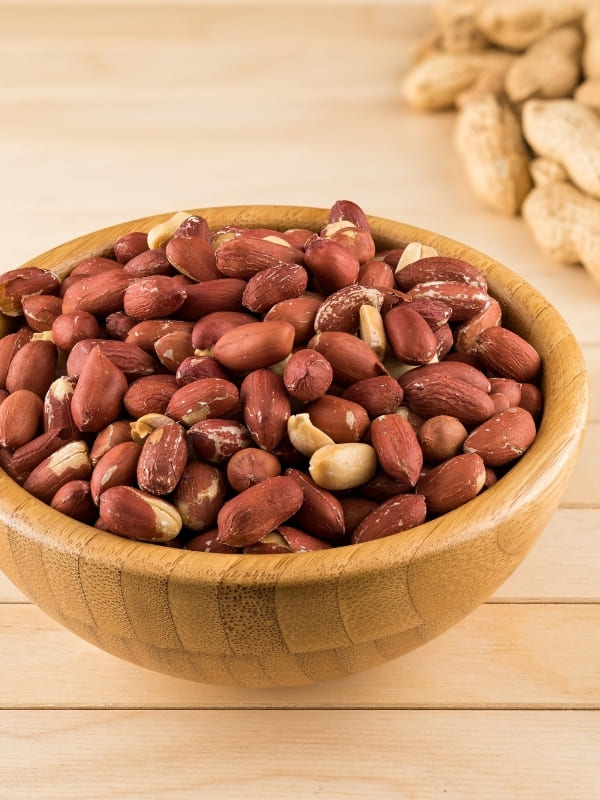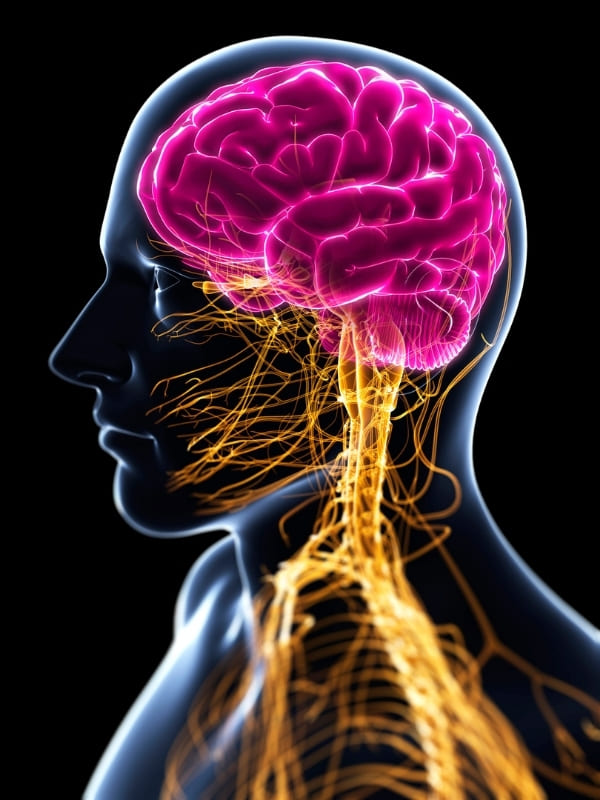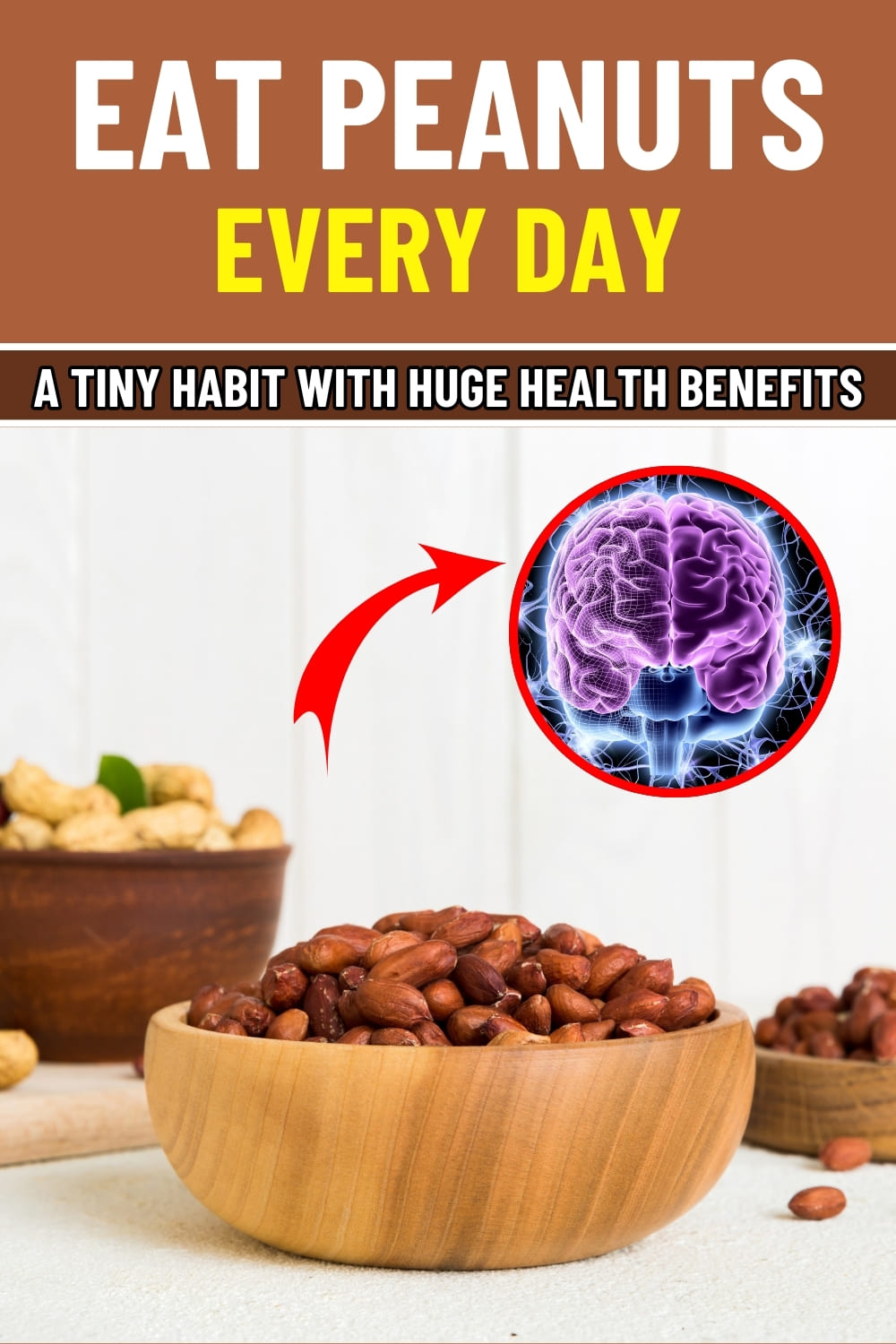Peanuts, often underestimated, are actually a powerhouse of nutrition. Despite their name, peanuts belong to the legume family, just like beans and lentils. But don’t let that fool you! These tiny, protein-packed wonders are loaded with vitamins, minerals, and healthy fats that can supercharge your health.
Eating peanuts daily isn’t just about satisfying your snack cravings; it’s about fueling your body with essential nutrients that promote longevity and well-being.
From heart health to weight management, the benefits of this humble legume are backed by science. Keep reading to discover why adding a handful of peanuts to your daily routine could be one of the best health decisions you’ll ever make!
Incredible Health Benefits of Eating Peanuts Daily
1. Boosts Heart Health and Lowers Cholesterol
Peanuts are rich in monounsaturated and polyunsaturated fats, the kind that supports heart health. According to research published in the American Journal of Clinical Nutrition, regular peanut consumption can reduce bad cholesterol (LDL) while increasing good cholesterol (HDL).
The high levels of resveratrol, an antioxidant also found in red wine, further protect the heart by reducing inflammation and preventing blood clot formation.
Eating peanuts daily can lower the risk of heart disease by as much as 30%, according to multiple studies.

2. Supports Weight Management Without Guilt
Think peanuts will make you gain weight? Think again! Despite their calorie density, peanuts are packed with protein and fiber, both of which promote satiety and reduce overall calorie intake.
A study from The Journal of Nutrition found that people who regularly ate nuts, including peanuts, were less likely to be overweight than those who didn’t.
The combination of healthy fats, protein, and fiber keeps hunger at bay, making peanuts a smart snack choice for those looking to maintain or lose weight.
3. Improves Brain Function and Memory
Want to keep your brain sharp as you age? Peanuts contain niacin (vitamin B3) and vitamin E, both of which are crucial for cognitive function and memory retention.
A study from the Alzheimer’s Association found that individuals with higher niacin intake had a reduced risk of developing Alzheimer’s disease.
Additionally, the resveratrol in peanuts has neuroprotective properties that may help prevent age-related cognitive decline. Just a handful of peanuts a day can help keep your mind in top shape!

4. Enhances Muscle Growth and Recovery
If you’re into fitness, peanuts should be a staple in your diet. They provide a high amount of plant-based protein about 25 grams per 100 grams making them excellent for muscle growth and recovery.
They also contain magnesium, an essential mineral for muscle function and energy production. Whether you eat them post-workout or as part of a balanced meal, peanuts can help repair muscles and keep you energized.
5. Reduces the Risk of Type 2 Diabetes
Peanuts have a surprisingly low glycemic index (GI), meaning they don’t cause major blood sugar spikes.
According to research from Harvard University, consuming peanuts regularly can reduce the risk of developing type 2 diabetes by improving insulin sensitivity.
Their combination of fiber, healthy fats, and protein helps stabilize blood sugar levels, making them a great snack option for those looking to manage or prevent diabetes.

6. Strengthens Bones and Joints
Did you know peanuts are packed with phosphorus and magnesium, two key minerals for bone health? Studies show that magnesium deficiency is linked to osteoporosis, a condition that weakens bones.
Regularly eating peanuts helps support bone density and joint function, especially as you age. The anti-inflammatory properties of peanuts also aid in reducing joint pain and stiffness.
7. Boosts Mood and Reduces Stress
Peanuts contain tryptophan, an amino acid that helps the body produce serotonin, the “feel-good” hormone. Low serotonin levels are associated with depression and anxiety.
By eating peanuts daily, you naturally support your body’s ability to regulate mood and stress. In addition, the magnesium in peanuts plays a role in stress reduction and relaxation, helping you feel calmer and more balanced.

8. Supports a Healthy Gut and Digestion
Gut health is crucial for overall wellness, and peanuts can play a role in maintaining a balanced digestive system. They contain prebiotic fiber, which feeds beneficial gut bacteria, promoting better digestion and nutrient absorption.
Studies have also shown that peanuts help reduce gut inflammation, making them beneficial for individuals with digestive issues like irritable bowel syndrome (IBS).
How to Incorporate Peanuts into Your Daily Diet
Eating peanuts every day is easy and delicious! Here are some simple ways to enjoy them:
- As a snack: Eat a handful of raw or roasted peanuts between meals for a protein-packed boost.
- In smoothies: Blend peanuts or peanut butter into your morning smoothie for extra creaminess and nutrition.
- In oatmeal or yogurt: Sprinkle chopped peanuts over your breakfast for added crunch and healthy fats.
- In cooking: Use peanut butter in savory dishes like Thai peanut sauce, stews, or dressings.
- As a topping: Crush peanuts over salads, stir-fries, or even desserts for a flavorful twist.
For maximum benefits, opt for unsalted and unprocessed peanuts to avoid excess sodium and unhealthy additives.

Cautions and Precautions
Peanut allergies are among the most common and can be severe. If you have a peanut allergy, avoid them completely.
Peanuts are calorie-dense, so stick to recommended serving sizes (about 1 ounce or a small handful) to avoid excessive calorie intake.
Some peanuts may contain aflatoxins, natural toxins produced by molds. To reduce this risk, choose high-quality, well-stored peanuts. If you have concerns, consult your doctor before making peanuts a daily habit.
Disclaimer
This article is for informational purposes only and should not replace professional medical advice. If you have health conditions or dietary concerns, consult a healthcare provider before making changes to your diet.

at Peanuts Every Day and Watch What Happens – Science Says It’s Worth It
